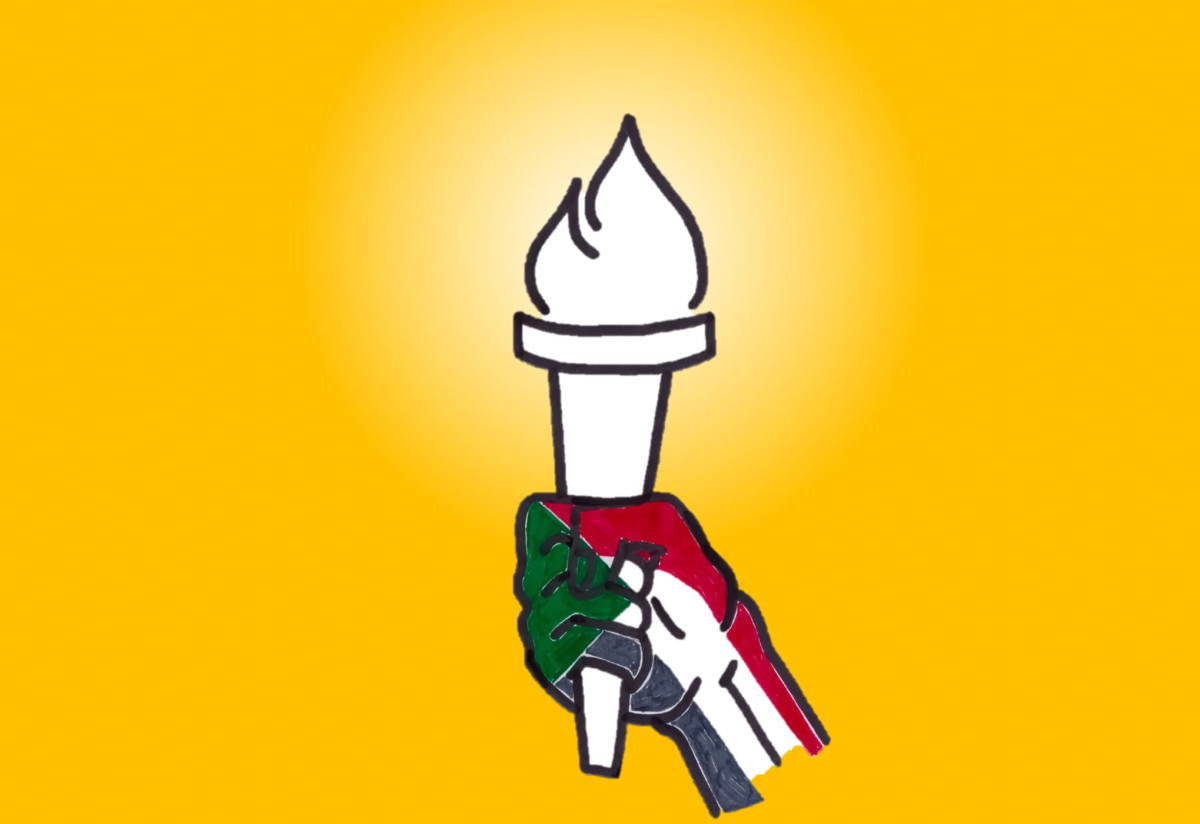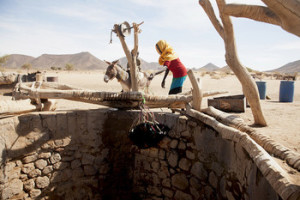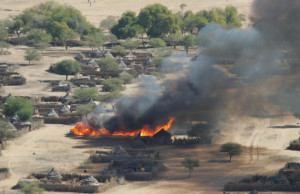Darfur Women Action Group express its grave concerns about the brutal massacre against protesters in Sudan and calls for immediate investigation and accountability for the perpetrator of the most heinous attacks against innocent civilians.
In the capital city of Khartoum, Sudanese protestors have been staging a peaceful sit-in since April 6th. The sit-in began a revolution that toppled the regime of Omar al-Bashir, but the struggle for establishing a truly democratic government wasn’t over. Protestors continued their demands for a representative government and entered into negotiations with the Transitional Military Council (TMC) to transfer the power to civilian government.
On Monday, the TMC deployed troops from the Rapid Support Forces (RSF) militia to quell the ongoing sit-in. The RSF then committed a massacre against civilian protestors. The RSF forcibly took control of the sit-in by seizing and setting fire to the tents of protestors and blocking all access roads into and out of Khartoum. RSF forces also attacked protestors with live ammunition, killing at least 100 individuals. The Sudanese Doctors Central Committee continues to count the individuals murdered by the RSF, closely monitoring the situation. It was reported on Monday that RSF forces and the security forces backing them forced individuals at the sit-in to lay on the ground, and then subjected them to whipping. They also shaved the heads of some protestors and reportedly forced others to drink sewage water. The Sudanese Doctors Central Committee also said that RSF and security forces laid siege to the Royal Care Hospital, El Mualim Hospital, and the clinic of University of Khartoum – effectively preventing the individuals they wounded while carrying out their attack from receiving care. Later, one doctor reported to Radio Dabanga that RSF troops were threatening to storm the hospital and kill the protestors inside.
RSF forces threw the bodies of those they murdered into the Nile, and on Wednesday, those bodies began floating to the surface. Forty individuals were pulled from the Nile, increasing the number of dead to at least 100. Some of these bodies are being identified while others were loaded into trucks by the RSF and taken to an unknown location; meanwhile families continue to report their loved ones missing since Monday’s massacre took place. Some of the bodies show signs of being shot or hacked by machetes.
Around the country protestors are taking to the streets, outraged by the violent attacks in Khartoum. The Alliance for Freedom and Change (AFC) has ended all negotiations with the Transitional Military Council, refusing to cooperate with the individuals responsible for the carnage that occurred on Monday. The AFC is calling for an escalation of the revolution, an “open, nationwide, general strike and complete civil disobedience until the regime is overthrown.” In Darfur, where over 3 million genocide victims are still in camps, people are calling for more sit-ins, political strikes, and civil disobedience. The internet and direct communication lines are cut off, militia vehicles patrol the streets, and there is no way in or out of Khartoum – making an already dire situation even more critical. The RSF also responded to sit-ins and protests in other parts of the country. Protestors in El Gadaref were wounded when police dispersed protestors with live ammunition and tear gas. In El Nahud of West Kordofan, one protestor was shot dead while another was wounded. In Ed Damiz of the Blue Nile State, RSF forces again attacked protestors by seizing and burning their tents and arresting them.
This tragic attack is not an isolated incident. The same Transitional Military Council that is perpetrating the massacre in Khartoum this week has been slaughtering civilians in Darfur for 17 years. The result is genocide, war crimes and crimes against humanity – for which criminal president al Bashir has been indicted by the International Criminal Court. The transitional Military Council led by Al Burhan and Hemeti are equally responsible for the genocide committed in Darfur. Now, they extended their violent reach to Khartoum, which is only possible because they haven’t been held accountable for their crimes. – Niemat Ahmadi, DWAG President
These tragic attacks have brought about multiple international responses – individuals and organizations are speaking out in formal statements condemning Monday’s massacre. The United Nations Secretary General is calling for “unimpeded access to deliver essential care,” and the United Nations High Commissioner for Human Rights is calling for and end to violence and promotion of peaceful demonstrations. The British Foreign Minister and Ambassador to Sudan, the European Union, the African Union and the US embassy in Khartoum have all released statements condemning the attacks. Human Rights Watch too condemned the actions of the RSF, with Jehanne Henry declaring “yesterday’s violence reminds us of the serious RSF abuses against civilians in Sudan’s war zones and it requires more than condemnations… Key international actors should impose targeted punitive sanctions against those responsible for the violence and urgently establish a UN inquiry.”
While DWAG appreciates these responses, we believe the situation in Sudan is dangerous and needs effective actions, not a few words of condemnation by the international community. How many more people must be killed before the international community acts? DWAG strongly believes that world leaders, regional and international bodies must take a rigorous action to end the current and the long-standing crimes committed with impunity in Sudan. The brave decision made by the African Union to expel Sudan from the AU is type of action that we want to see, and hope other international bodies will take similar measures to force the Military Council to end its barbaric and violent rule.
- We urge the United Nations Security Council members to immediately send human rights observers, investigate the crimes and hold the perpetrators accountable.
- We urge the member states of ICC and UNSC to demand immediate arrest of President al-Bashir and the former officials wanted by the ICC to be surrendered to the court to face justice.
- We call on the United States Government to exercise pressure over the Transitional Military Council, backed by Islamist regime, to immediately seize attackers and transfer power to a civilian government.
- We urge the US and the African Union to stop the Saudi and the Emirati governments from interfering and exploiting the conditions on the ground in Sudan.
We wish to remind the world that the current violence in Sudan is the cost of impunity for the genocide crimes enjoyed by al-Bashir and these very military leaders who are trying to shield him.
Thank you,
Darfur Women Action Group






